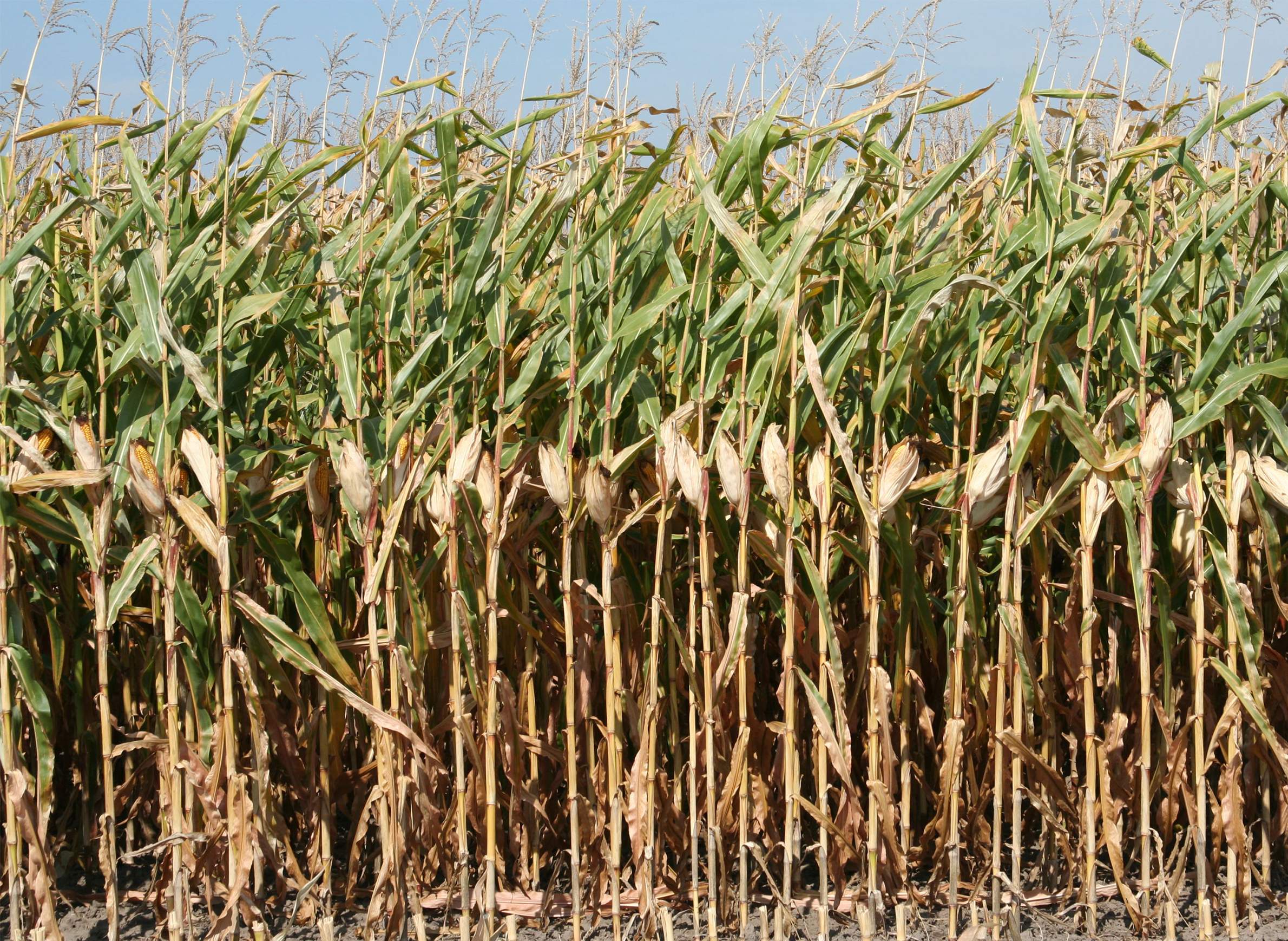
Wisconsin's 'Grand Experiment' With GMO Corn

Farmers' use of transgenic corn over the past 20-plus years is putting pressure on ecosystems, in part by making some weeds more resistant to herbicides.
In that time, farmers around the U.S. have seen yields increase. But genetically modified corn does not boost the crop's yield — it just protects the yield by incorporating traits that help the corn thrive. Transgenic corn is created by the addition of genes from a different species to help the plants resist weeds and insects.
During this new transgenic era, Wisconsin corn farmers have seen their yields increase by about 2 bushels per acre per year. This progress also comes with some trade-offs. University of Wisconsin-Extension Corn Agronomist Joe Lauer discussed corn yields, genetically modified corn and his research in a Sept. 9, 2015, presentation in Madison. His talk was part of the Wednesday Nite @ the Lab lecture series and was recorded for Wisconsin Public Television's University Place.
Lauer acknowledged the use of genetics with crops is controversial and, for him, differences in perspective can be hard to understand. He noted organic farmers can apply an insecticide that uses a common soil bacteria, Bacillus thuringiensis, but some people object to adding genes from that bacteria to corn genes.
Lauer described different techniques to develop hybrids. Some hybrids work very well to prevent problems with crops by disrupting pest cycles. This approach has helped farmers almost completely eliminate the European corn borer, which suggests a lot of potential for transgenic crops.
Other positive aspects of transgenic hybrids include less soil erosion, and reduced pesticide use and management challenges, which leads to better yield, pest control and nutrition. Cons include slow consumer acceptance, the perception among farmers that all transgenics perform well and are effective, and the fees farmers must pay to the companies that develop the transgenic technology.
Lauer also described cropping systems and the practice of rotating corn and soybeans, a practice that has been prevalent for about 30 years. His research finds rotating two crops does not increase yield in the long term, but adding a third crop like wheat does.
For more information, Lauer recommended the U.S. Department of Agriculture's Genetically Engineered Crops in the United States as a fair, well-documented report that fairly represents all sides of the debate about issue.
Key facts
- Lauer's corn agronomy lab tests about 550 hybrids each year. The lab conducts trials at 13 to 15 locations around Wisconsin, planting about 13,000 plots a year. His lab has the longest running organic hybrid evaluation program in the U.S.
- UW-Extension agricultural trials in Lancaster are evaluating greenhouse gas production.
- In corn, about 24 transgenic trait products have been released and deployed commercially. The current state-of-the-art technology for corn is smart stacks hybrids, which have eight traits and about 34 transgenes.
- The record for corn yield was set in Georgia with more than 500 bushels per acre.
- U.S. corn records go back to shortly after the Civil War. Yields did not increase because farmers used open pollinated hybrids or varieties of corn until the hybrid corn was commercialized in the 1930s.
- The U.S. grows the most biotech crops, with about 70 million hectares (or 173 million U.S. acres, or nearly five times the area of Wisconsin) planted to biotech crops that include maize, soybean, cotton, canola, sugar beet, alfalfa, papaya, and squash. Brazil grows the second most, and Argentina the third, each with about 64 million hectares of biotech crops.
Key quotes
- On the cost of transgenic corn seed: "Probably the biggest issue, though, among growers has been the technology fees associated with these crops. Typically, a bag of corn seed used to cost $125 to maybe $175. Now, oftentimes, it's around $300 to $350 a bag for seed, and there are projections that it could go up as high as $400 to $500 per bag. So that's been a real controversy, but, again, the technology works."
- On how Wisconsin farmers select hybrids: "Increasingly, the way we pick our hybrids really kind of dictates the way we manage the crop out there. If you choose Roundup Ready [genetically modified crops designed to resist the herbicide Roundup, which is used to kill weeds], well you've got a bunch of options then. … [T]hat decision is becoming more and more important. We always used to recommend using multi-location data and looking at consistency of performance. But we also now have to pay attention to these seed costs. We know that every hybrid has interactions that go on with the different transgenes that are a part of that genetic makeup now, and sometimes we don't know how those interactions are going to manifest themselves."
- On Wisconsin's diverse agriculture: "We've got the dairy industry here, which allows us to have a more diverse landscape out there for the crops we grow. We grow corn, we grow soybeans, we grow winter wheat, which the straw is probably more valuable than the wheat because we use that for bedding in our dairy industry."
- On weed resistance: "We've had a number of different weeds that have become resistant, many of them before the advent of transgenics, but now we're starting to see some giant ragweed, which is resistant to glyphosate, coming into Wisconsin, and that's going to be an important issue as we go forward. Who's to say some of these resistances wouldn't have developed anyway, but it's probably being speeded up a little bit with this. We're putting a lot of pressure on Mother Nature, if you will, with these transgenic crops."


